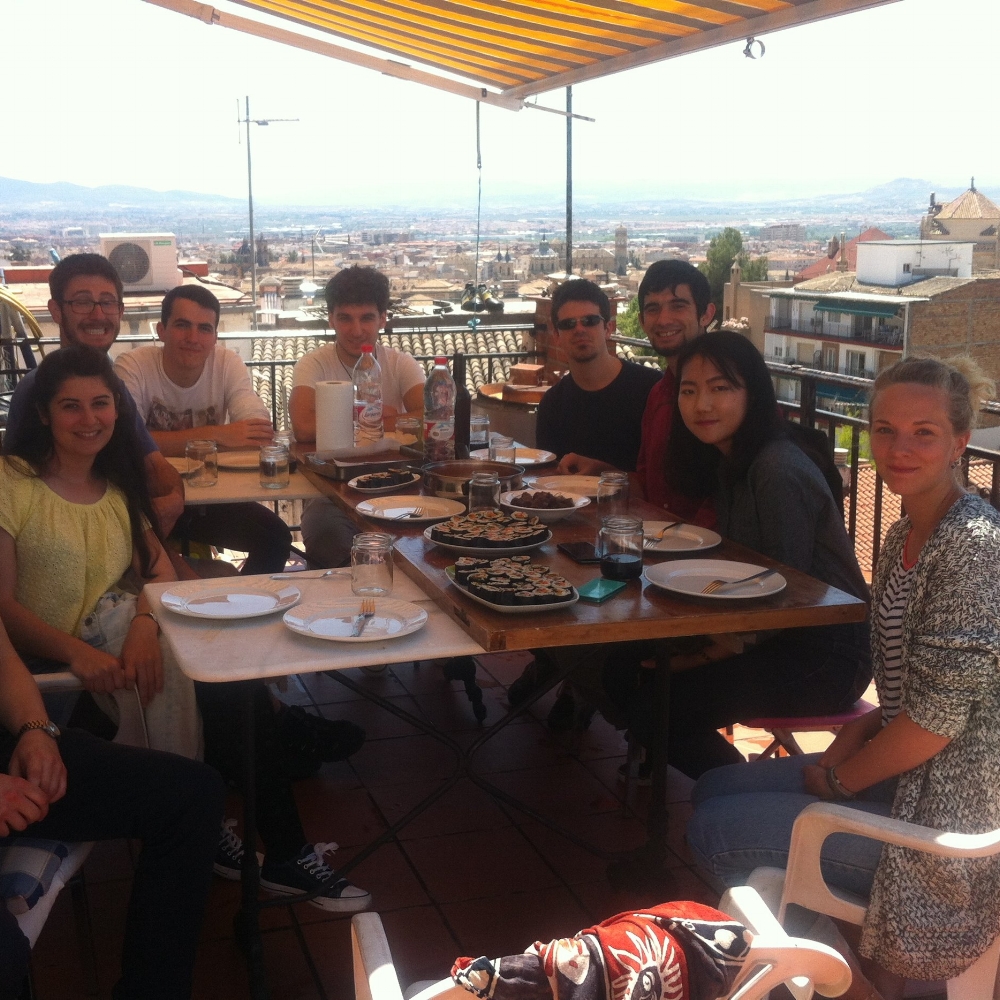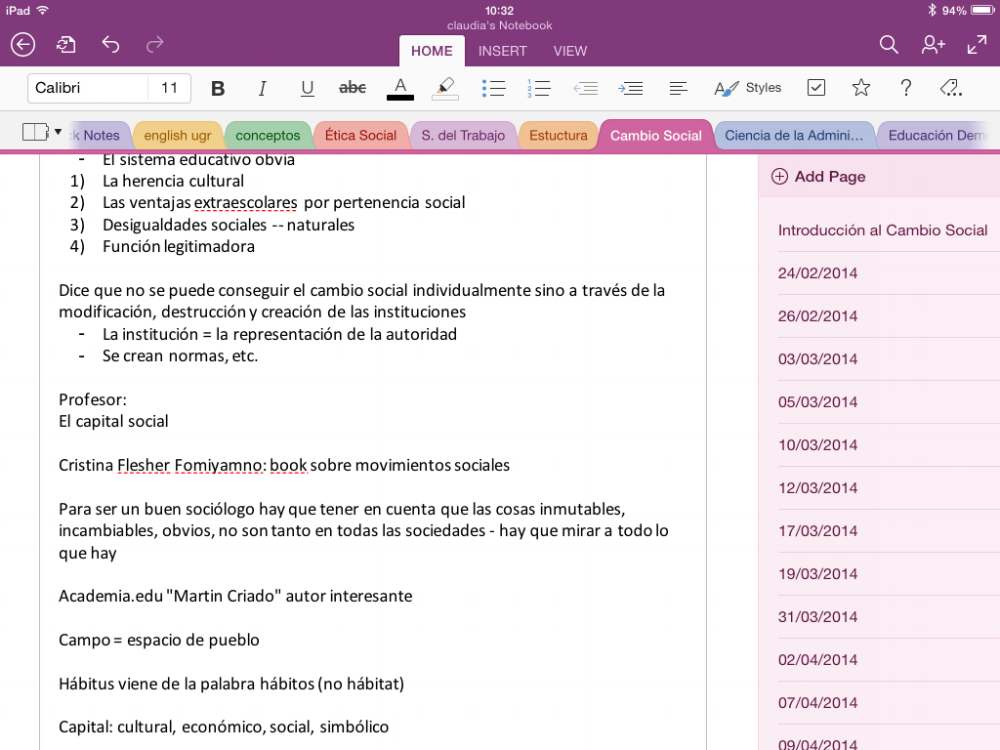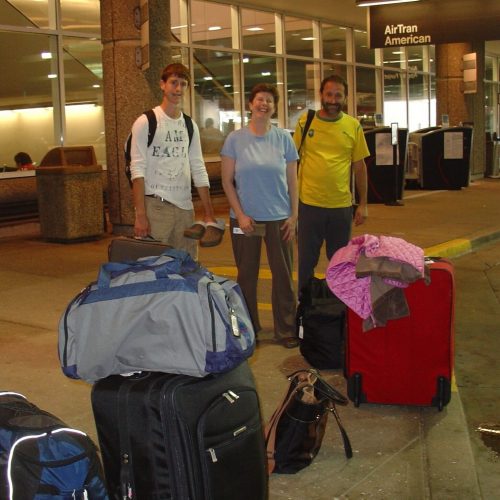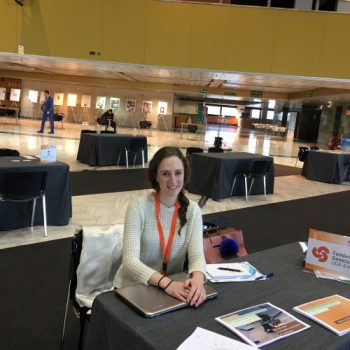
Studying a Degree in Spain (Part II)
Dear Caroline,
To round out my “Taking All Your Classes in Spanish” and “Studying a Degree in Spanish (Part I),” this entry is talking more about the personal/relationship/growth side of studying your whole degree in Spain. It is split into similar categories as Part I but the focus is on what it means to thrive in a personal way instead of a more technical/academic way. I hope that the three articles can give you a good picture of my personal experience, but if you have any questions, feel free to ask!
 You have an advantage: When we are at home, we tend to be more comfortable in our situation, happy with our friends, and not looking for something very different from what we have. However, when you live abroad, almost by necessity, you are looking for friends and open to new opportunities. When you don’t know anyone, finding someone means the difference between feeling alone and being able to share adventure with a friend. This also means that you put yourself out there to meet new kinds of people and, personally, grow in a way you might never have grown had you stayed at home.
You have an advantage: When we are at home, we tend to be more comfortable in our situation, happy with our friends, and not looking for something very different from what we have. However, when you live abroad, almost by necessity, you are looking for friends and open to new opportunities. When you don’t know anyone, finding someone means the difference between feeling alone and being able to share adventure with a friend. This also means that you put yourself out there to meet new kinds of people and, personally, grow in a way you might never have grown had you stayed at home.
In addition, I’ve found myself more open to ‘crazy*’ things than I would have been before. I’ve gone on overnight trips with groups of people I barely knew (multiple times and it’s always turned out great!), I’ve hosted many people via couchsurfing, I have no fear of blablacar, etc. Because I’m meeting new people (and want to make friends like the serial friender I am), I am willing to step out of my box.
Which means you have a disadvantage as well: Like I mentioned in Part I, one big disadvantage is the making friends due to cultural and language barriers. It is hard to create relationships with your classmates for many reasons—one perhaps being that they think you don’t speak Spanish, but that is another story. And, in all honestly, I think it is hard to connect with people from other cultures until you are truly integrated because you might not ‘get it’ (although, they won’t ‘get it’ either). Spending time with potential Spanish friends can cause problems when understanding: a meeting time, what the plan actually is, etc. but this isn’t always necessarily a bad thing.
In the end, it will probably lead you to find your niche with other foreign students (don’t worry, it shouldn’t be hard) or specific Spanish classmates/people you meet. This is also a wonderful way to make connections and even lasting relationships with Spanish people that you probably wouldn’t have without this experience. Personally, I ended up making friends with classmates who wanted to work in a similar manner as I did (final grade, time invested, quality of work, etc.), met people who wanted to play soccer, and others who are interested in similar things. So this disadvantage might mean you have to do a bit more to get started, but it will be worth it in the end!
 You learn a lot (and not only academics): Depending on your living situation, you will be sharing space with others or learning how to take care of yourself on your own. Either way, you will begin to grasp a deeper understanding of what you can buy in grocery stores, how to use things like gas burners and immersion blenders, and calculate how much you can spend while out drinking and still pay for heating. Like back home, these are all important skills that you learn, but here the patterns and basics are different so you have to figure out ways to set yourself up for success.
You learn a lot (and not only academics): Depending on your living situation, you will be sharing space with others or learning how to take care of yourself on your own. Either way, you will begin to grasp a deeper understanding of what you can buy in grocery stores, how to use things like gas burners and immersion blenders, and calculate how much you can spend while out drinking and still pay for heating. Like back home, these are all important skills that you learn, but here the patterns and basics are different so you have to figure out ways to set yourself up for success.
This also means that your cultural adaptation to a place is distinct to if you are just staying for a semester or two. Making friends only with other exchange students is asking for heartbreak over and over as they will leave and you will find yourself alone again. At the same time, these students are the ones who will understand your situation the best, so you don’t want to completely isolate yourself from them. Creating lasting friendships with Spanish people may be harder from the start, but also may last longer as you will be here for four years.
Personal experience has taught me that a good balance of foreigners and locals (and people from other places in Spain) keep me on my toes in all languages and cultures—and I can usually find someone who understands what I am thinking or going through.
I figure I got a minor in cultural competence: I know, I already told you guys how I figure I got a double major in Sociology and Spanish (which is pretty good), but I also think I got a minor in cultural competence. While the specificity of this minor might be particular to me—I wrote both my undergraduate and master’s final papers on it—I truly believe that the experience of living abroad long-term has an impact on your cultural competence.
Moving forward, this cultural competence will help you work with different types of people from all around the world, integrate better into global workplaces, and inspire you to look beyond what you know to enjoy an international perspective. Obviously, like everything I have experienced, not everyone will have the same results. However, I think your probability of a higher cultural competence is higher when you spend more time in an intercultural environment.
What do you think? Have I convinced you it would be a good idea to study your whole degree abroad?
Sincerely,
Spain
*What is crazy for me might be mildly adventurous for you. However, at the end of the day it’s getting out of your personal comfort zone that’s important.




